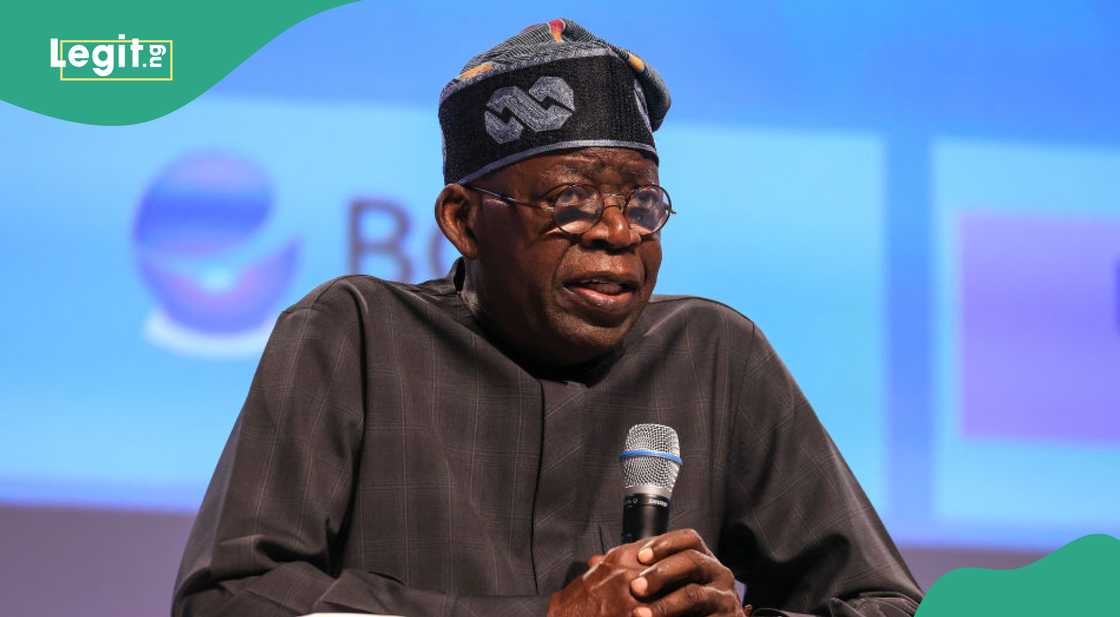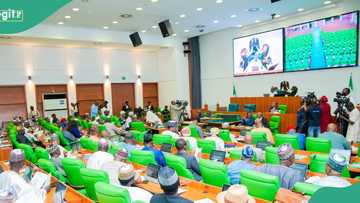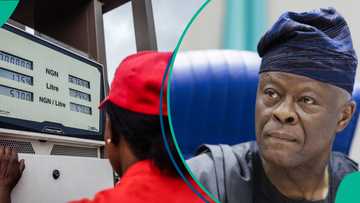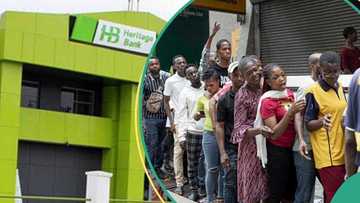LCCI Sends Debt Sustainability Warning As Tinubu Govt Plans To Borrow Another $2.2bn
- The Lagos Chamber of Commerce and Industry (LCCI) has issued a note of warning to the Nigerian government
- The chamber raised concerns about Nigeria's rising debt profile, noting it could jeopardise fiscal stability
- LCCI noted that debt servicing costs could potentially surpass capital expenditure in the 2025 budget
The Lagos Chamber of Commerce and Industry (LCCI) has expressed concern over the federal government's move to take another $2.2 billion external loan.
The chamber warned it could worsen Nigeria’s infrastructure challenges and deepen debt sustainability risks.

Source: Getty Images
In a statement, Chinyere Almona, LCCI’s director-general, cautioned that rising debt servicing costs may soon surpass capital expenditure allocations in the 2025 federal budget.
Legit.ng earlier reported that President Tinubu requested permission to borrow $2.209 billion from external sources, and the Senate and the House of Representatives approved.
According to Tinubu, the $2.209 billion loan request would help to finance the deficit in the 2024 budget.
LCCI worries about Nigeria's debt level
Punch reports that Almona, in her statement, stressed the need for adequate safeguards against risks.
She said:
"The concerns are driven by weak economic fundamentals and the lack of a clear strategy to address these challenges and achieve economic stability in the near term.
"With a debt-to-GDP ratio exceeding 50%, debt servicing expenses are projected to outpace capital expenditure, and Nigeria, owing about $17 billion, remains the third-largest debtor to the International Development Agency (IDA).
"The LCCI feels compelled to reiterate its warning about imminent debt sustainability issues, which could further undermine critical infrastructure across the country.
"The Chamber has consistently advised against relying solely on debt financing to address budget deficits, emphasising the need to explore alternative funding options.
"A key concern with continued borrowing is the potential for debt servicing obligations to surpass allocations for infrastructure development, particularly in the 2025 federal budget."
Almona expressed concern about the potential impact of external currency shocks caused by the depreciation of the naira against the dollar, which could complicate debt servicing.
She noted that the Central Bank of Nigeria (CBN) has struggled to boost foreign exchange supply to stabilise the naira, with little success.
Given these challenges, she stressed the importance of the government exercising caution in its borrowing practices, the Cable reports.
Almona also urged the authorities to prioritise transparency and accountability in using borrowed funds to ensure effective utilisation.
China accounts for 81.98% of Nigeria's external debt
Legit.ng had earlier reported that the news of China taking over Uganda's Airport stirred heated reactions from Nigerians as many fear a similar fate awaits Nigeria.
Although details of Nigeria's agreement with China are publicly unavailable, DMO data shows Nigeria is indebted to five countries worth over N1 trillion.
As expected, China accounts for the highest debt stock by countries and the debts were obtained through bilateral agreements.
PAY ATTENTION: Сheck out news that is picked exactly for YOU ➡️ find the “Recommended for you” block on the home page and enjoy!
Source: Legit.ng




